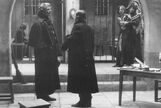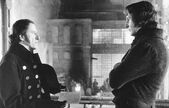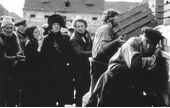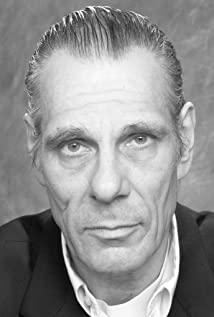I have seen a musical of Les Misérables, which is very beautiful. This version of the movie I saw this time was shot in 1998, and it only lasted more than an hour. I remember the last musical for several hours. I think it’s wonderful if I haven’t read the original. The plot of this movie is simpler, focusing on the conflict between Jean Valjean and Javert. From a criminal to a good man on earth, Jean Valjean not only got salvation for his soul, but finally influenced Javert. The probation actually "killed" Javert. It turns out that this is a typical case of coaxing a person to death without paying for his life (kindness can also kill)-
At this time, I thought of a story I told the children. Winter is here, and the devilish wind tries hard to wipe off people’s coats, but the more it blows, the tighter everyone wraps up. Spring is here, and the spring breeze gently touches people’s faces. And body, people take off their coats consciously and voluntarily-
Look, different ways and methods can achieve the same goal.
After Jean Valjean was redeemed by the Lord, he also gave this kind of love to the people around him, and even forgiven Javert, who would kill him everywhere. Javert's worldview is to punish evil and promote good, but Jean Valjean's method is to influence. These two people have different experiences and completely different worldviews, so their practices are naturally different. Javert’s approach is like Western medicine in the treatment of diseases. Its core idea is to remove the bad cells so that the remaining good parts can grow healthily in order to achieve the healthy growth of the whole body; while Jean Valjean’s approach is more like the treatment of diseases in Chinese medicine. The cells gradually regulate until they return to a healthy state, so as to restore the entire body to normal. Traditional Chinese medicine, western medicine, law and ethics, the second time I saw The Miserable World, I even connected these things. Are there some similarities? One is the treatment of the human body, and the other is the social management.
Javert’s conception is in serious conflict with Jean Valjean’s. In the play, Javert is more like an upright legal machine that strictly maintains social order. Either black or white is his belief, and Jean Valjean is because of his tortuous experience. , Deeply feeling the care for the weak and the bad can also awaken the soul of this type of people. Javert has always believed in order and legal principles. The release of Jean Valjean is a reward, but it is a blasphemy of his own beliefs. For such a person who enforces the law, letting off the criminal is dereliction of duty. There is no balance of his conscience and dereliction of duty. The law was settled, and in the end he committed suicide. People who have too little knowledge will eventually walk into the dead end of their beliefs. As everyone knows, their human nature is rich and colorful, and the world is even more exciting. The more knowledgeable and experienced people are, the more tolerant they are.
The historical background in the play is the French Revolution. The revolution is more radical. Can the image represented by Javert in the film allude to the radicals in the revolution? He wants to eagerly deny the old system, overthrow everything, and overthrow it again, but this is the approach It does not solve all problems. Perhaps the process of revolution can achieve the goal without bloodshed, and the social order becomes better as a result. The characterization of Jean Valjean in the film seems to have played such a role.
The content of the masterpiece is so rich that you will feel different every time you read it. This time, I thought about the creative expression of literary works. For a long time, there have been references and allusions to the expression of literature. For example, the work "A Dream of Red Mansions" in our country at almost the same time is a masterpiece that alludes to the history of the rise and fall of dynasties based on the history of the rise and fall of the family. The English name of "Les Miserables" is called The Wretched. It expresses the tragic state of Paris society at that time by describing the tragic fate of the characters. It describes the characters and reveals the misery of the society in that historical period. It wants to make society more through revolution. It's beautiful, but it didn't fully achieve the purpose it really wanted to achieve. This masterpiece should not only bring you the ups and downs of the storyline and the thinking about human nature, it should also evoke human thinking about how to make society better at the least cost. The creation of each work is the embodiment of the author’s thoughts. Let’s take a look at Hugo’s own growth and experience and Hugo’s age and background when he created this work. You can better understand this work after reading these: In 1802, Hugo was born into a family of military officers. In 1830 (28 years old), the French "July Revolution", Hugo enthusiastically praised the revolution; 1831 (29 years old) "Notre Dame de Paris" published, his democratic thoughts enlightenment work; 1843 Years (41 years old) failed during the performance of the play "Guardian"; 1845 (43 years old) became a member of the Noble House; 1848 (46 years old) Hugo supported Napoleon III (France moves towards republic); 1851 (49 years old) ) Napoleon III's coup, proclaiming the monarchy. Hugo opposed and was in exile for 19 years; 1862 (60 years old) Hugo's novel "Les Miserables" came out; ... On May 22, 1885, Victor Hugo died in Paris. Respected by posterity as the Shakespeare of France. It can be said that "Les Miserables" is a work that combines Hugo's life's observations and thoughts. Its content covers the Napoleonic Wars and the following ten years, and it is integrated into French history, revolution, and war. , Moral philosophy, law, justice, religious beliefs. Different people reading "Les Miserables" can read different "Les Miserables", just as one thousand people read "Hamlet" and there are a thousand Hamlets.
View more about Les Misérables reviews











